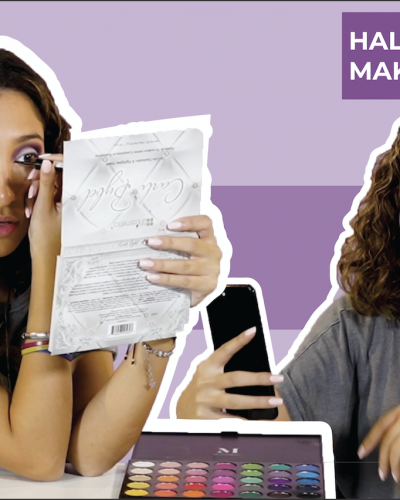You Will Defs Like these too
Life Video of The Day

Rund's Halloween Makeup TutorialOct.27.2020
New at The Modern East
Sign Up To Our Newsletter
[ninja_forms_display_form id=20]

A new generation of stargazers are looking for answers. Answers to their hopes, their fears, their worries, and their desires. Whether it’s physically studying the positioning of the stars or simply connecting via a smartphone app, young people seem to be increasingly infatuated with the practice of astrology. From creating zodiac-themed meme accounts to buying makeup palettes to suit their sign, the influence of astrology has become all-encompassing.
Of course, astrology has always been present throughout history, however the growing buzz shows a shift in attitudes towards the practice. In recent times, common knowledge on horoscopes were limited to tiny sections at the back of cheap magazines. Those with real interest in the subject were dedicated astrologers with years of study and immersion in the field. The astrologers were the primary gatekeepers of information, and without wide use of social media, this meant that most knowledge was out of reach.
Today, star signs are not simply one-dimensional. More and more people have become increasingly aware of their entire birth chart as astrology has become mainstream and accessible. Prior to the widespread availability of horoscope apps such as Co – Star, manually constructing a birth chart would require a huge amount of time and knowledge. Now, you can type in your birth date and time into a computerized system and receive your full report in seconds.
This technological shift has made astrology appear scientific and modern. In a 2014 study conducted by the National Science Foundation, it was found that 58% of young people aged between 18-24 believed that astrology is a science. This isn’t surprising given that apps like Co – Star advertise themselves by stating that they use “NASA data” to “algorithmically generate insights” for their users. Although astrology is not a science, it is marketed as such. In a world dictated by reason and logic, this scientific turn has legitimised and popularised the practice.
Many have argued that the rise of astrology is due to the decline of religion in the Western world. Although this could be true, the way in which astrology is viewed and practiced is not comparable to organised religion. Whilst religion provides answers on a societal level, astrology is limited to the focus of the individual. Instead of looking for answers to life’s ‘big’ questions, perhaps people are just searching for something else to believe in…themselves. In the age of social media, selfies have turned us into narcissists.
We are self-obsessed and proud. Astrology provides another output for this, and allows users to think about their personality, fortune, and future in a different way. With self obsession and commercialisation coming hand in hand, there is no doubt that spirituality is being capitalised. Astrology is marketable and profitable.
As long as investment into digital astrology continues, the popularity of the zodiac will continue to grow. It has outlived the average lifespan of a meme or trend and is probably here to stay. Astrology’s new appeal as a personalized product is stereotypically suited to the generation Z and young millennial audience. Although not replacing religion, this practice shows real possibility to dominate future understandings of spirituality.

